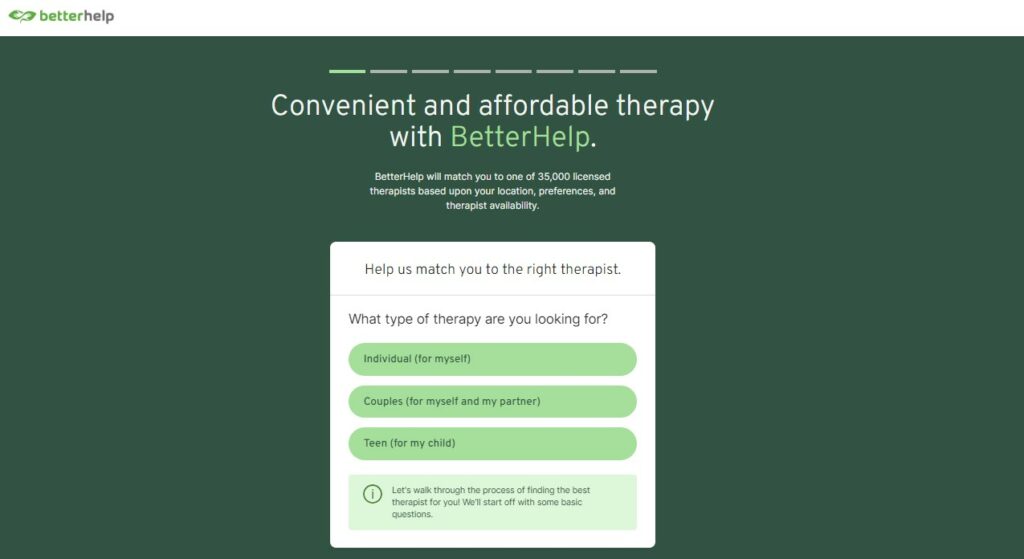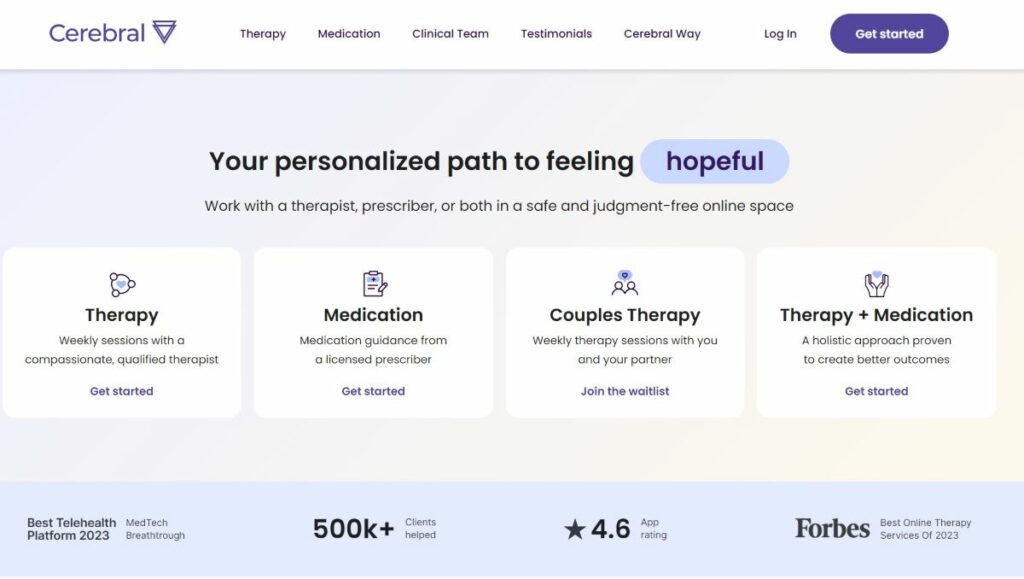Telemedicine has emerged as a game-changing force, revolutionizing how patients access healthcare services and bringing convenience and cost savings.
Among the key players in this rapidly evolving landscape is Teladoc, which faces stiff competition from established companies and emerging challengers.
In this exploration of the telemedicine landscape, we will compare Teladoc with its competitors, shedding light on their unique strengths, weaknesses, and future outlooks in the race to lead the virtual healthcare revolution.
The Telemedicine Landscape

The telemedicine landscape has experienced significant growth in recent years, driven by technological advancements, changing patient needs, and increasing healthcare costs.
This growth has led to the emergence of several key players in the industry, with Teladoc Health standing out as one of the largest companies in the space.
Competing alongside Teladoc are companies such as Amwell, One Medical, Walmart Health Virtual Care, MDLIVE, and Doctor on Demand, all striving for their market share.
As the sector continues to evolve, telemedicine providers are focusing on specific niches, such as mental health services and virtual healthcare services, to differentiate themselves and cater to the diverse needs of patients.
Mental Health Services
Mental health services, including various mental health offerings, hold an important place in telemedicine as the need for accessible and affordable mental healthcare continues to grow.
Companies like BetterHelp, Cerebral, and Brightside have emerged to address this demand, specializing in online counseling, therapy, and mental health coaching services.
These platforms often include practice management tools that enable providers to streamline their services and improve patient outcomes.
The increasing focus on mental health services in telemedicine offers patients the convenience of accessing specialized care from the comfort of their own homes.
This is particularly beneficial for those who may not have access to traditional mental health services, such as individuals living in rural areas or those with high health insurance copays.
As a result, mental health services are becoming an essential part of telemedicine’s offerings, contributing to improved health outcomes for patients across the globe.
Virtual Healthcare Services
Virtual healthcare services are expanding beyond traditional telemedicine, with some companies integrating in-person and virtual care options to provide a comprehensive healthcare experience.
Organizations such as One Medical and Walmart Health Virtual Care are leading the way in this hybrid approach, offering a combination of in-office and virtual care, on-site labs, and programs for preventive care and chronic care management.
This progression of virtual healthcare services enables patients to access care when and where they need it, offering greater convenience and flexibility in their healthcare journey.
Top Teladoc Competitors

As the telemedicine market grows, Teladoc faces competition from several leading companies, each with unique strengths and approaches.
Among these top competitors are Amwell, One Medical, Walmart Health Virtual Care, BetterHelp, Cerebral, and Brightside.
In the following sections, we will delve into the details of these companies, examining their service offerings, provider networks, and innovations in the telemedicine space.
Amwell

Amwell is a significant competitor to Teladoc, providing telemedicine services for primary care, mental health, and chronic care management.
With a network of over 1 million healthcare providers across the United States, Amwell has established strategic partnerships with major health systems and technology companies such as Google Cloud and Apple, enabling it to focus on technology and innovation.
With a wide range of services, including therapy for individuals, couples, and families, psychiatry, and medication management, Amwell aims to cater to various mental health conditions and preferences.
Amwell typically charges a flat fee for each session, which can range from around $99 to $110 for therapy or psychiatry appointments. The exact cost may vary depending on factors such as the length of the session and whether you are using insurance to cover the cost.
Doctor on Demand

Doctor On Demand is a telehealth company that offers online therapy and primary care consultations, making it a popular choice for individuals seeking mental health services, nutritional counseling, and general medical care.
Doctor on demand focuses primarily on primary care consultations, therapy, psychiatry, and medication management services. They offer video sessions exclusively for therapy, with the ability to prescribe medications for various conditions.
Doctor On Demand pricing can vary depending on the type of service and the provider you see. For medical visits, the cost is usually around $75 to $99 per visit, while mental health visits may range from $129 to $179 per session.
Read our Doctor on Demand review here.
MDLIVE

MDLIVE is a telehealth provider of online and on-demand healthcare. MDLIVE offers talk therapy and psychiatry services, plus other types of medical care, including urgent care, primary care, and dermatology.
Therapy sessions at MDLIVE are generally between 45 and 60 minutes long; psychiatry appointments are 30 minutes for the initial appointment, and then 15 minutes for subsequent appointments.
Today, patients at MDLIVE benefit from the company’s HIPAA-compliant, cloud-based virtual medical office software platform and national network of licensed therapists and board-certified physicians.
For medical visits, the cost is usually around $82 to $95 per visit, while mental health visits may range from $108 to $284 per session. The exact cost may vary depending on factors such as the length of the visit and the provider’s credentials.
One Medical

One Medical is a membership-based primary care provider and a digital health company that offers digital health services, including online doctor visits, to its members.
The company’s unique approach combines the benefits of in-person care with the convenience of virtual care, providing a seamless healthcare experience for its members.
Individuals pay an annual or monthly fee to access primary care services. Membership fees typically range from around $199 to $249 per year, depending on the location and plan selected.
Walmart Health Virtual Care

Walmart Health Virtual Care is another key player in telemedicine, offering telehealth services for primary care, behavioral health, and chronic care management.
Leveraging Walmart’s resources and scale, the company is well-positioned to compete with Teladoc and other major telemedicine providers.
Walmart Health provides services for organizations as well as individuals. Individualized telehealth behavioral health services include Talk therapy, Teen therapy, and Psychiatry. Pricing on this platform ranges from $58 to $229 depending on the type of service you require.
In addition to offering virtual care services, Walmart Health Virtual Care benefits from Walmart’s physical presence. Patients can book an appointment at a Walmart Health Center or Sam’s Club Pharmacy and receive virtual care from a doctor.
This combination of virtual and in-person options gives Walmart Health Virtual Care a unique advantage in telemedicine.
BetterHelp

Explore emotional well-being with BetterHelp – your partner in affordable online therapy. With 30,000+ licensed therapists and plans starting from only $65 per week, BetterHelp makes self-care accessible to all. Complete the questionnaire to match with the right therapist.
BetterHelp is an online counseling platform that connects users with licensed therapists, offering a specialized focus on mental health services.
The company provides various services, including individual therapy and group therapy, making it a valuable asset in the online therapy industry. BetterHelp costs between $60 – $90 per week, including talk, text, and video chats with your therapist.
The platform boasts a vast network of over 30,000 licensed therapists, ensuring users can find the right fit for their needs and preferences.
Once you are matched to a therapist, you can send messages to your therapist at any time, from anywhere, using any Internet-connected device.
Read our BetterHelp review here.
Cerebral

Cerebral is a prominent mental health telemedicine company providing medication management and therapy services for anxiety, depression, and insomnia.
Cerebral therapists are licensed professionals with expertise in evidence-based practices to treat mental illness and help clients develop coping skills to manage their symptoms.
Cerebral offers three subscription plans for various mental health needs: Medication ($95 per month), Therapy (295 per month), and Medication + Therapy ($ 365 per month).
However, please note that Cerebral is not recommended for individuals with severe mental health issues, such as schizophrenia, substance use disorders, or suicidal ideation
The company’s emphasis on providing specialized mental health services and its focus on improving patient outcomes contribute to its competitive edge in the industry.
Brightside

Brightside is a telemedicine platform that offers personalized treatment plans for depression and anxiety, combining medication, therapy, and self-care tools.
By providing customized care, Brightside helps patients manage their mental health conditions and improve their overall well-being.
Although Brightside has a limited provider network compared to some of its competitors, the company’s focus on mental health and utilization of technology make it a strong contender in the telemedicine market.
Brightside offers four subscription plans: Psychiatry + Therapy (349 per month), Psychiatry (95 per month), Therapy (299 per month), and Crisis Care + Psychiatry (pay with insurance only).
Emerging Telemedicine Challengers
As the telemedicine landscape continues to evolve, new challengers are entering the market, offering innovative approaches to virtual healthcare and posing potential threats to established companies like Teladoc.
Among these emerging challengers are PlushCare and Sesame Care.
PlushCare

PlushCare is a virtual primary care and mental health provider that connects patients with healthcare professionals for same-day appointments.
Offering general and preventative care, urgent care services, prescription refills, and more, PlushCare provides a comprehensive range of services to patients nationwide, including urgent care visits.
PlushCare pricing ranges from $30 to $129 per session depending on your insurance coverage and the type of service you need.
With its nationwide virtual platform and same-day appointments, PlushCare is well-positioned to capitalize on the growing demand for accessible and convenient healthcare services.
Sesame Care

Sesame Care is a telemedicine platform that offers direct-to-patient care, including urgent care, skin care, women’s and men’s health, wellness and prevention, and sexual health.
The company does not accept insurance but works directly with providers to keep costs affordable, making it a great option for those seeking cost-effective healthcare services.
By engaging directly with providers and offering cash-pay services, Sesame Care appeals to millions of consumers without insurance and those who find cash payments more economical than health insurance copays.
This unique business model and focus on affordability set Sesame Care apart from other telemedicine companies and positioned it as a compelling alternative in the market.
Strengths and Weaknesses of Teladoc and Its Competitors
To better understand the competitive landscape in the telemedicine industry, it is essential to examine the strengths and weaknesses of Teladoc and its competitors.
In the following sections, we will discuss critical factors that contribute to the success or failure of these companies, including provider networks, service offerings, and innovation.
Provider Networks

A key factor in the success of telemedicine companies is the strength of their provider networks.
Teladoc boasts a strong network, with over 20,000 providers in the United States and over 100,000 providers worldwide.
In addition, the company has partnerships with notable health systems, including Kaiser Permanente and UnitedHealthcare.
Competitors like Amwell and One Medical also have robust provider networks, with Amwell having over 1 million providers across the United States and One Medical having over 10,000 providers.
These companies have established partnerships with major health systems, including Cigna and Aetna, which can help them attract more patients and provide a wider range of services.
Service Offerings
Service offerings vary among telemedicine companies, with some focusing on specific areas like mental health.
In contrast, others offer a broader range of services, such as primary care and chronic care management.
This diversity in service offerings allows companies to differentiate themselves and cater to the diverse needs of patients.
Teladoc, for example, provides a comprehensive range of services, including primary care, mental health, and chronic care management.
Meanwhile, BetterHelp focuses on mental health services, and Walmart Health Virtual Care offers virtual and in-person care options.
By tailoring their service offerings to the needs of their target market, telemedicine companies can better position themselves for success in the competitive healthcare landscape.
Innovation
Innovation is crucial in the telemedicine industry, as companies must constantly develop new products and services to stay ahead of the competition.
Teladoc, Amwell, and One Medical are examples of companies dedicated to product innovation, investing in research and development to create technologies that can improve the quality of care while reducing costs.
As the telemedicine landscape continues to evolve, it is essential for companies to not only adapt to changing patient needs and market demands but also to drive innovation in their service offerings.
By doing so, they can remain competitive and ensure their long-term success in the industry.
The Role of Health Insurance and Self-Insured Employers

Health insurance and self-insured employers play a significant role in the telemedicine market.
These entities provide telehealth benefits to their members and employees, facilitating access to care and encouraging the use of telemedicine services.
Companies like Teladoc and its competitors have partnered with insurers and employers to provide virtual healthcare services.
By leveraging these relationships, telemedicine providers can expand their customer base, increase their revenue, and secure a stronger foothold in the market.
Future Outlook for Teladoc and Its Competitors
The future outlook for Teladoc and its competitors is still being determined, as the telemedicine landscape is constantly evolving and new challengers continue to enter the market.
Companies like PlushCare, Sesame Care, and Amazon Care are examples of emerging competitors that bring innovative approaches to virtual healthcare and pose potential threats to Teladoc and other established providers.
To stay competitive in this rapidly changing market, telemedicine companies must continuously adapt and innovate, finding new ways to meet the evolving needs of patients and providers.
Summary
Throughout this exploration of the telemedicine landscape, we have compared Teladoc with its competitors, shedding light on their unique service offerings, provider networks, and innovations.
As the telemedicine industry evolves and new challenges emerge, companies like Teladoc and its competitors must adapt and innovate to remain competitive.
By understanding the strengths and weaknesses of these companies and the role of health insurance and self-insured employers in the market, we can gain valuable insights into the future outlook of the telemedicine industry and the potential opportunities and challenges that lie ahead.
Frequently Asked Questions
Who are Teladoc’s competitors?
Teladoc’s main competitors are Doctor On Demand, Amwell, and MDLive. These companies provide similar telemedicine services to Teladoc.
How is Amwell different from Teladoc?
Amwell and Teladoc are both telehealth companies, but Amwell excels in providing a mobile platform for teleconsultation and has higher ratings from analysts and users.
What is the primary advantage of Walmart Health Virtual Care compared to other telemedicine providers?
Walmart Health Virtual Care offers numerous advantages over other telemedicine providers, mainly its convenience and affordability.
With Walmart’s physical presence providing an easy access point for customers to book virtual care appointments and receive quality medical services at an affordable cost, it is no wonder that Walmart Health Virtual Care is quickly becoming a preferred provider.






